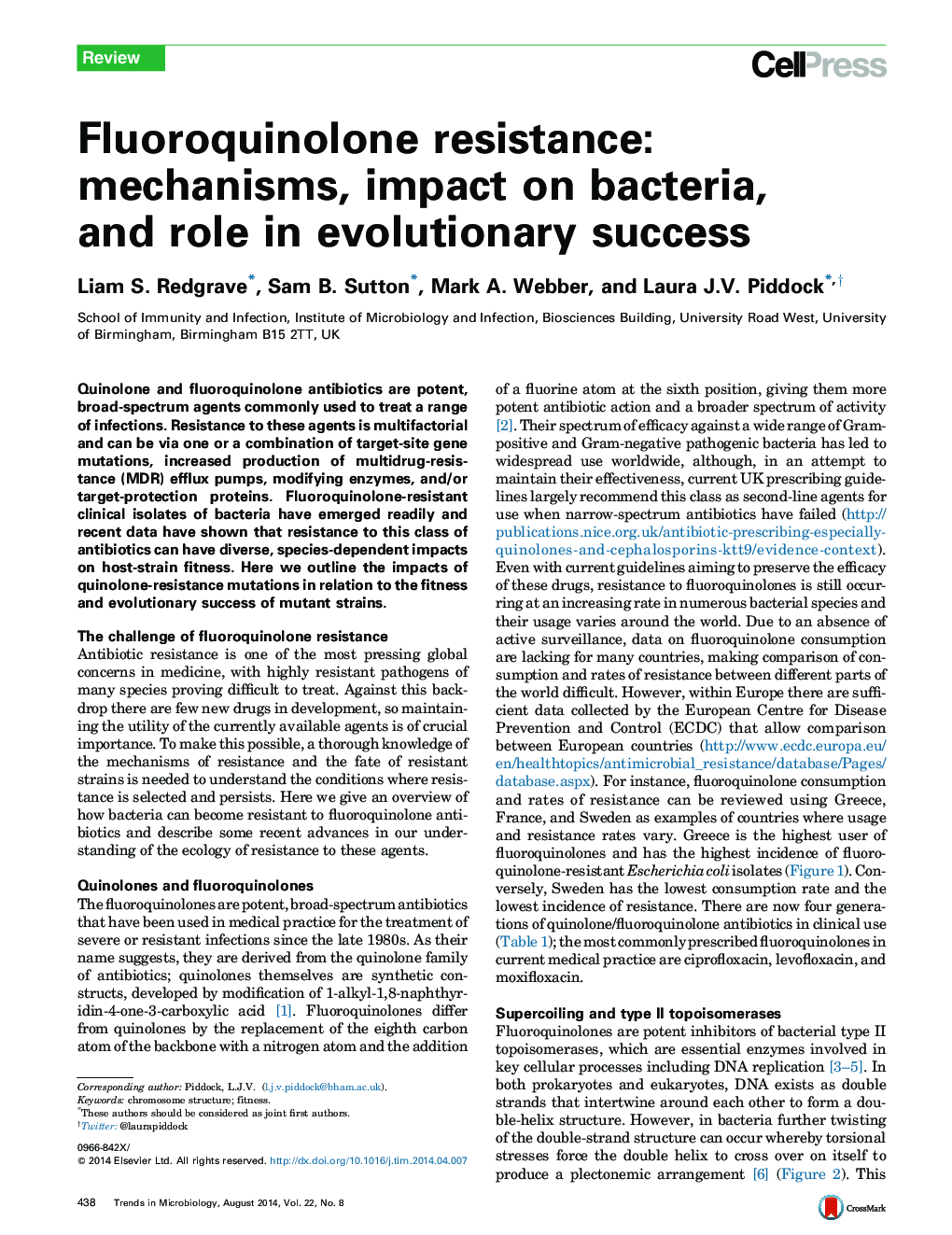| Article ID | Journal | Published Year | Pages | File Type |
|---|---|---|---|---|
| 3422080 | Trends in Microbiology | 2014 | 8 Pages |
•Fluoroquinolones are broad-spectrum, powerful antibiotics.•Resistance to fluoroquinolones is multifactorial.•Fluoroquinolone resistance confers varying fitness costs to bacteria.•Globally successful clones have emerged due to being fluoroquinolone resistant.
Quinolone and fluoroquinolone antibiotics are potent, broad-spectrum agents commonly used to treat a range of infections. Resistance to these agents is multifactorial and can be via one or a combination of target-site gene mutations, increased production of multidrug-resistance (MDR) efflux pumps, modifying enzymes, and/or target-protection proteins. Fluoroquinolone-resistant clinical isolates of bacteria have emerged readily and recent data have shown that resistance to this class of antibiotics can have diverse, species-dependent impacts on host-strain fitness. Here we outline the impacts of quinolone-resistance mutations in relation to the fitness and evolutionary success of mutant strains.
